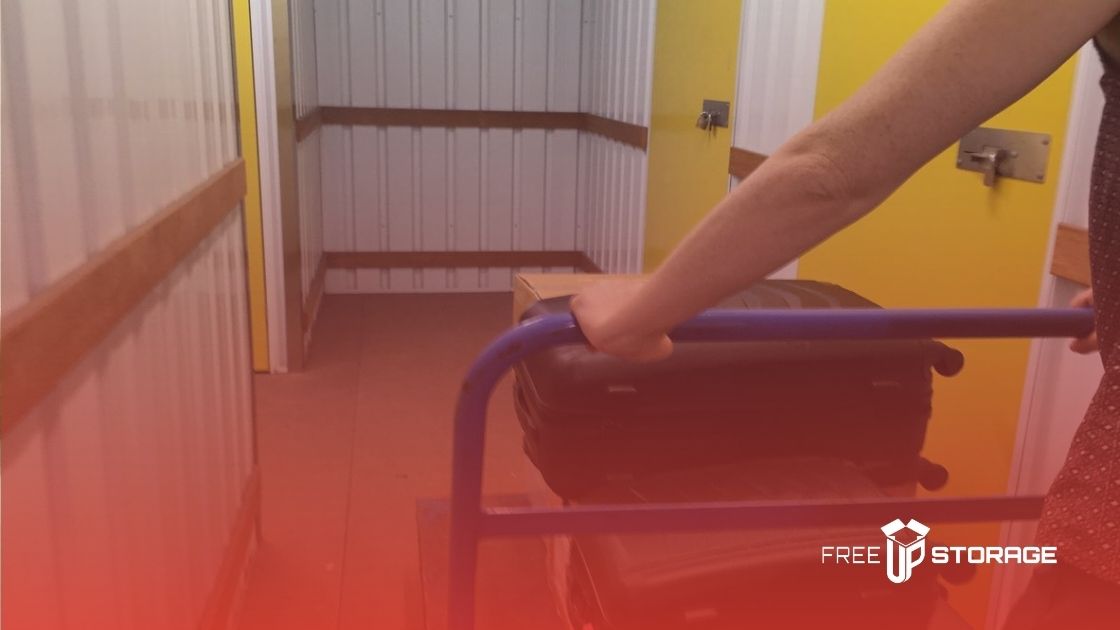The Do's and Don'ts of Self Storage: Best Practices for Storing Your Belongings
FreeUp Storage
May 15th, 2023

You’ve come to the decision that you need a self storage unit. Maybe this decision came after a long debate, or perhaps it was a fairly simple and straightforward conclusion. Either way, you now need to actually rent a storage unit and prepare to store your belongings. However, if you aren’t careful, you may end up damaging your belongings when trying to keep them safe. As with everything, there are a lot of “newbie” mistakes that even experienced storage renters can make. Whether you are using self storage to help you move, declutter your garage, or to expand your e-commerce business, there are many ways you can accidentally set yourself up for failure. That’s why you will want to know the “dos and don’ts” of self storage before you rent a self storage unit.
Don’t: Just Pick the Cheapest Storage Unit
Storage units are not all created equal. While the storage unit’s size is the most obvious difference between them, there are various small but important features in storage facilities that cater to your specific needs. For example, some storage units are climate controlled to help protect items that can be damaged by the elements. Others have 24-hour access so you can store or retrieve items at any point, meanwhile some have amenities like drive-up access or storage bays, making it easier to unload heavy or large belongings. Understanding your needs will help you determine the best unit for you. Make sure to do your research before you rent to make sure you get the amenities you want.
Do: Prepare Items Correctly
Before you rent a self storage unit, you will want to prepare your items for storage. While many items can be cleaned off and thrown in a box, other items need specialized storage to keep them from becoming damaged. Even things like furniture require special attention before storage. How you position it, cover it, and protect it can all have an impact. Purchase plastic covers to protect your furniture from dust, debris, and moisture, and place sensitive items as far away from the entry as you can to keep them away from the elements. Of course, there are various items you can’t store. Perishable items, flammable chemicals, and contraband all are not allowed in self storage facilities. Some facilities have expanded lists of items you cannot store, so check what you can or can’t store ahead of time.
Don’t: Store Anything Highly Valuable
While self storage is generally considered safe, as the old adage goes, “accidents happen.” Whether it is by mother nature herself, human error, or malice, things can happen to your stored items. Pests can get in, heat and cold can damage items, or things can get stolen. If you have researched your self storage facility beforehand and rented storage with the amenities you need, such as climate-controlled storage for temperature-sensitive belongings, the likelihood of things being damaged or stolen is slim, but that’s still a chance you might not want to take. You can buy storage insurance to help cover your items, but it is generally considered wise that items with great sentimental of monerital value should be kept close to home.
Do: Organize Your Items Before You Store Them
One of the benefits of self storage is that you have access to your items when you need them. You can enter the storage unit, find the thing you were looking for, and take it out with ease. However, without proper preparation and organization, the process won’t be quite so smooth. Try to plan how you want to store your items beforehand. Label your boxes to indicate their contents and keep a list on hand of what items are in your self storage unit. If you’re going to be visiting often, leave an open walkway through your self storage unit to keep all items within easy reach. All of this can save you time when looking for items.
Don’t: Be Unsafe
Most self storage facilities will give you a key, fob, or code to enter the facility. This is so that you can have access to your items without having to interact with others. While this has its benefits, it does have its downsides, as anyone with a key, fob, or code can access the facility. So, do not share or give these to anyone else as this can endanger your belongings as well as those belonging to other people. If your facility does not provide a lock for your storage unit, be sure to bring one of your own. In addition, don’t store anything that may rot, attract pests, or could cause damage to the facility and your items. While most facilities have rules, laws, and precautions against such use, it is also for the protection of everyone who uses that facility.
Do: Choose FreeUp Storage
When you need some additional space, rent a storage unit near you from FreeUp Storage. We operate in more than 11 states with over 50 facilities across the country. You’ll find drive-up storage access, climate-controlled storage, secure vehicle storage, and more at our facilities. Find out why so many people trust us. Learn more about all that FreeUp has to offer and rent your unit online today!
The FreeUp Storage Blog
